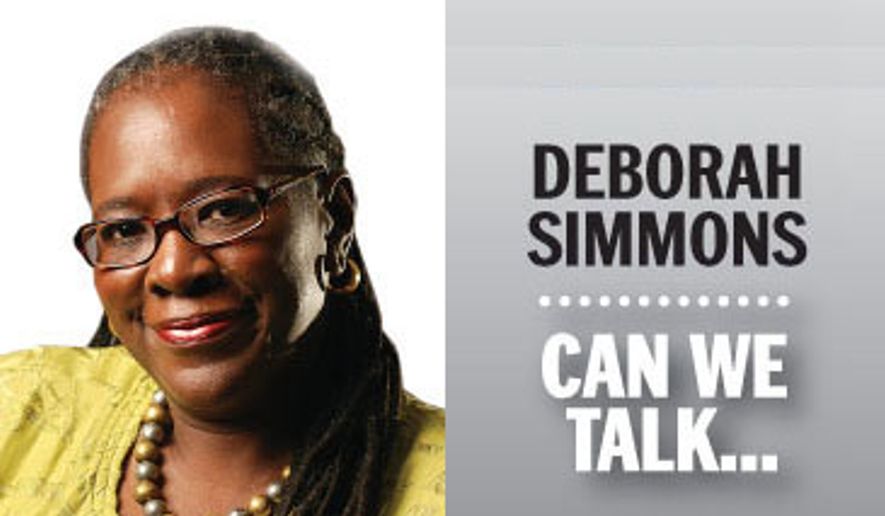ANALYSIS/OPINION
It’s official: D.C. is exercising or abusing eminent domain in the name of the “public good.”
The latest “good” deed is on behalf of D.C. United, the Major League Soccer team that grew green with envy after baseball returned to the nation’s capital. So, like the Washington Nationals, United is being given a new home along the Southwest waterfront. The inaugural coin toss is slated for the 2017 season unless the courts intervene.
The D.C. government filed suit in D.C. Superior Court on Tuesday as the sands in the hourglass were running out on an agreement that called for the city to complete land acquisitions for the stadium. One of those acquisitions was a two-acre parcel in the hands of John “Chip” Akridge, founder and CEO of the prominent commercial real estate development and management firm that bears his name.
Mr. Akridge is not the snag, though. D.C. officials are.
The initial proposal for the soccer stadium called for land/money swaps, with D.C. being in charge of assembling the stadium plot and negotiating the cash. The agreement included buying properties owned by investor Mark Ein, Super Salvage junkyard and Mr. Akridge. The Ein and junkyard deals apparently went smoothly: Both sold for below-market value rates. Pepco left too.
Mr. Akridge is the lone holdout for two reasons — one financial, the other political.
1. The initial deal, proposed by then-Mayor Vincent Gray in 2013, called for Mr. Akridge to swap his two acres for cash and the rights to buy the Reeves Municipal Center property, city-owned land at the corner of 14th and U streets NW. But the price and value of that land was disputed. In 2013 Reeves was assessed at only $128 million. Meanwhile, the city’s chief financial officer said it was worth $76 million. Reeves sits on prime real estate in the heart of the U Street corridor. Think Ben’s Chili Bowl, Howard University and the Howard Theatre and the hot, hot, gentrified Shaw neighborhood.
Also, culturally speaking, the Reeves Center represents the resurrection of 11th and U streets, which were devastated during the 1968 riots. It is the centerpiece of the “new D.C.” But after all the stadium bartering and bickering, Reeves now stands as a testament to eminent domain thievery.
2. The stadium deal was initiated in 2013 but struck in 2014, a year in which the mayor was fighting for his political life and the mayoral wannabe, Muriel Bowser, was chair of the D.C. Council economic development panel. After whipping Mr. Gray at the polls and smacking the rumps of a couple of her council colleagues, then-Mayor-elect Bowser in December said this about the possible use of eminent domain: “We won’t be delayed in getting to build a new stadium.”
On Wednesday Ms. Bowser made good on her threat: “The District of Columbia and D.C. United are moving forward on a soccer stadium that will transform a neighborhood on the banks of the Anacostia [River] and generate hundreds of new jobs for District residents. We have created the best deal for the District, its residents, D.C. United and its fans.”
We do not know what Mr. Akridge’s plans are for 14th and U, and that issue could be beside the point because the city has not revealed details of its plans either. A D.C. judge might, however, and that judge likely will also get into the weeds of the political shenanigans.
What’s meant by shenanigans is this: On at least three occasions in recent years, the city has used eminent domain to rip off landowners in the name of economic development and the “public good.” One such case is the redevelopment of the Skyland shopping center in Southeast. The site of a former post office, supermarket and ragtag small businesses, Skyland had several property owners, and none of them was quick to jump at the city’s offers. So the city took most of them to court and, in the early 2000s, pulled together reams of legal reasons why those landowners should sell their properties to the city. There were years of legal wrangling, and the courts agreed.
That’s what gentrification does. It bulldozes most of the old for things shiny and new. Sometimes for the “public good,” sometimes for the greedy.
D.C. government and its liberal caretakers often fall into the latter category, and their sucking sound is fast becoming overwhelming.
Imagine the precedent a judge could set if he or she simply sided with Mr. Akridge, the landowner.
• Deborah Simmons can be reached at dsimmons@washingtontimes.com.
• Deborah Simmons can be reached at dsimmons@washingtontimes.com.




Please read our comment policy before commenting.